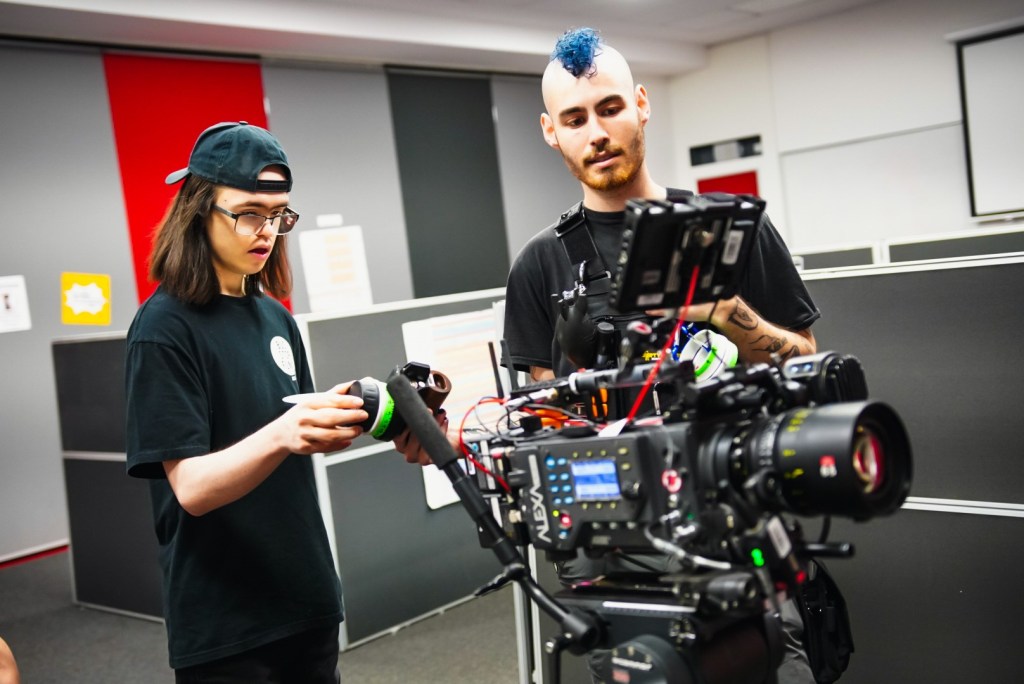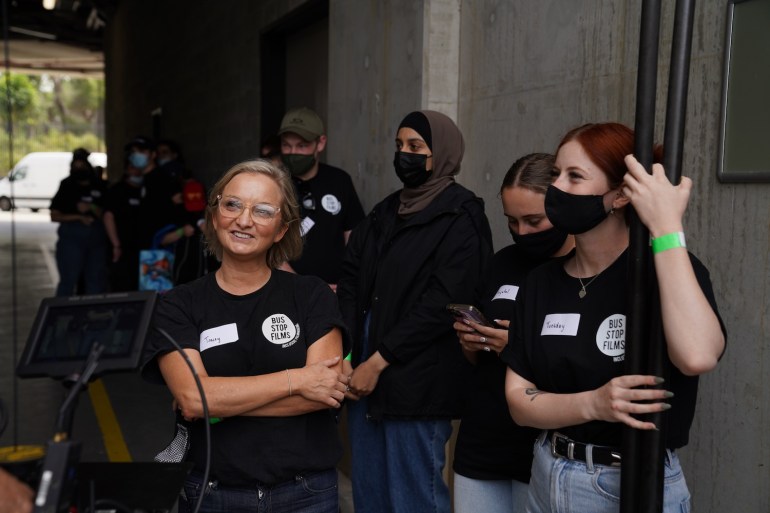When Bus Stop Films soft launched its employment service in late 2022, with the aim to connect people with disability to work within the film, TV and media industries, it had just a part-time general manager to oversee its operations.
Yet within less than 18 months, Bus Stop Employment has more than tripled its delivery, creating pathways for people with disability on a diverse range of productions, from Netflix dramas through to high-budget TVCs and live sports. It now operates with a full-time general manager, three employment trainer assessors, and an employment coordinator. Services include one-on-one inclusive consultancy for productions, job-ready training, support in hiring, casting, and onboarding with skilled disability support workers who also understand production.
Within its talent database are around 80 people. Around 60 per cent are members of Bus Stop’s nationwide Accessible Film Studies Program, while others are people from the general community who live with disability.
This month, Bus Stop Films headed to LA to meet with studios and production companies about using the employment service on inbound productions to Australia, and in November, will host its first ever Employment Summit in Sydney.
Bus Stop Films CEO Tracey Corbin-Matchett OAM sees the service’s growth as a sign of continued positive change. When she first became CEO of the not-for-profit back in 2018, she recalls “begging” productions to hire people with disability, or producers approaching her “like they had been sent to the principal’s office” when government agencies made hiring people with disabilities a condition of production finance.
“I’m uplifted by the positive change in the direction of the industry,” she says.
“People are wanting to employ more people with disability and do it in a culturally safe way.
“Production companies are seeing the benefit of bringing us on board when they’re making content with disability. It’s also the directive from the broadcasters and commissioners; they want to see that if you’re making content with storylines that involve people with disability, that you are making it inclusively.”

While Bus Stop Films would often provide employment support prior to the launch of the service, it had done so in the absence of any additional funding. Corbin-Matchett recognised that with more resources it would be able to put forward a more sustainable and improved offering, and raised seed funding from the Westpac Foundation and The Snow Foundation to allow Bus Stop Employment to formally launch in 2022.
From the Federal Government, the service also received a $448,400 grant towards the Inclusive Crewing Project, an initiative Bus Stop Films will undertake on its first feature, Baby Cat, now in late-stage development.
Written and directed by Bus Stop Films co-founder Genevieve Clay-Smith, the film is led by Olivia Hargroder as a young woman living with Trisomy 21 (Down syndrome) who must prove she can live independently or risk her grandmother selling the family house and moving her into a group home.
The Inclusive Crewing Project will support Bus Stop Films to provide multiple paid employment opportunities for people with disabilities on the film, and develop department-specific resources aimed at building the confidence of heads of departments to employ people with disabilities. These will focus on nine key areas: director/assistant director; producer; camera; sound; lighting; hair and makeup; production design; wardrobe and costume, and editing and VFX.
“It’s really exciting for us as an evolution of our maturity as a production company to move from short form into long form,” Corbin-Matchett says.
“We’re using Baby Cat as a case study for how you can make longform content inclusively.”
An example of how Bus Stop Films can work with productions is Truce Films and Fremantle Australia’s AACTA-nominated feature documentary This is Going to Be Big, which follows neurodiverse students from Sunbury and Macedon Ranges Specialist School as they stage a John Farnham-themed musical.
Bus Stop was an inclusion partner on the project, consulting on areas of accessibility and wellbeing across the entirety of production, from casting and hiring through to post-production. It provided its Inclusion in Action training for the production team and crew placements for people with disability. At the film’s Melbourne International Film Festival premiere, Bus Stop also ensured captioning, an Auslan interpreter and an accessible venue, and it will also work with the ABC on its impact campaign following its broadcast launch. The film was the first production to receive Inclusively Made accreditation.
“The team really wanted to give authenticity to inclusion at every step. Rhys Ballis, who undertook a placement on the production, was able to leverage that credit to get his traineeship on Neighbours. It’s a really great example of how one disability employment placement, can unlock the building blocks to the next opportunity,” Corbin-Matchett says.


